College Prep Resources
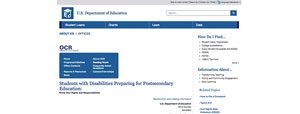
Students with Disabilities Preparing for Postsecondary Education
Know your rights and responsibilities, from the Office for Civil Rights, U.S. Department of Education.
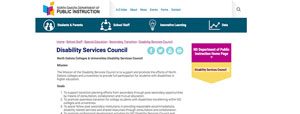
North Dakota Colleges & Universities Disability Services Council
Helps provide full participation for students with disabilities in higher education in North Dakota.

RU Ready ND
An education and career planning website

Financial Aid Scholarship How To's
Application tips for filling out the FAFSA and finding other financial aid.

Free Application for Federal Student Aid (FAFSA)
Where you can fill out the FAFSA.

Bank of North Dakota Student Services
Find money for college.
Did you know?
You will not have an IEP after you graduate from high school.
North Dakota Education and Training Programs

Adult Student Transition Education Program (A-STEP)
A transition and postsecondary education program that makes college a reality for young adults with intellectual disabilities
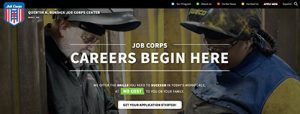
Quentin Burdick Job Corps
A no-tuition education and career technical training program for people age 16-24.

Operation Intern
Internship, work experience, and apprenticeship positions in North Dakota.

Apprenticeship Programs
Training for many jobs. Helps employers build and maintain a skilled workforce.

ND Department of Commerce Workforce Development
Offers specialized programs and services to help enhance North Dakota's workforce
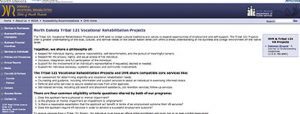
121 Tribal Vocational Rehabilitation Projects
Offers a greater understanding of the local, cultural, and familial needs on the Indian Nation, along with a broad understanding of the business and college environment off Native lands.
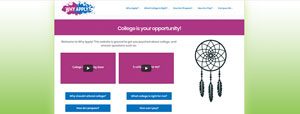
Why Apply ND
Answers questions like "Why should I attend college?" and "How do I prepare and pay for college?"
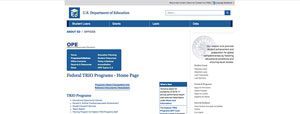
TRIO
Eight programs that serve low-income individuals, first-generation college students, and individuals with disabilities.
Keys for College Success
- Take responsibility for your own choices and their consequences.
- Take high school classes that will help you succeed in college.
- Learn to manage your time well.
- Research colleges and universities.
- Get involved at school and in your community.
- Understand how your disability affects your learning.
- Know what accommodations help you.
Adapted from: U.S. Department of Education, Office for Civil Rights, Transition of Students with Disabilities to Postsecondary Education: A Guide for High School Educators, Washington, D.C., 2011.
Which Law Applies to My College
| College Receives State Funding | College Receives Federal Funding | College Receives NO State or Federal Funding |
|---|---|---|
| Americans with Disabilities Act (ADA) | Section 504 of the Rehabilitation Act of 1974 | Neither ADA nor Section 504 |
For more information about ADA, visit the Parent Advocacy Coalition for Educational Rights (PACER) website or the Rocky Mountain ADA Center website.
What Documents Will My College Need?
Your IEP or Section 504 plan tells what has helped you in the past, but your college needs current information. It may request one of these:
- A diagnosis of your current disability
- When and how you were diagnosed
- The credentials of the diagnosing professional
- Info about how your disability affects a major life activity or your academic performance

What to Expect in College
Teachers in High School and Professors in College
| Teachers in High School | Professors in College |
|---|---|
| Check your completed homework. | May not check your completed homework. They assume you can perform the same tasks on tests. |
| Remind you of your incomplete work. | May not remind you of incomplete work. |
| Approach you if they believe you need help. | Most expect you to initiate contact if you need assistance. |
| Are often available for conversation before, during, or after class. | Expect and want you to attend their scheduled office hours. |
| Trained in teaching methods to assist in imparting knowledge to students. | Trained as experts in their particular areas of research. |
| Present material so you understand what’s in the textbook. | May not follow the textbook. They may give illustrations, provide background information, or discuss research about the textbook. Or, they may expect you to relate the classes to the textbook readings. |
| Write information on the board to be copied in your notes. | May lecture nonstop, expecting you to identify the important points in your notes. When they write on the board, it’s to amplify the lecture, not summarize it. Good notes are a must. |
| Impart knowledge and facts, sometimes drawing direct connections and leading you through the thinking process. | Expect you to think about and synthesize seemingly unrelated topics. |
| Remind you of assignments and due dates. | Expect you to read, save, and consult the syllabus, which spells out exactly what is expected of you, when it’s due, and how it’ll be graded. |
Tests in High School and College
| Teachers in High School | Professors in College |
|---|---|
| Frequent and covers small amounts of material. | Usually 2-3 a semester and may be cumulative, covering large amounts of material. Sometimes there are NO STUDY GUIDES. |
| Makeup tests are often available. | Makeup tests are seldom an option. If they are, you need to request them. |
| Tests are frequently rearranged to avoid conflict with school events. | Tests are scheduled without regard to the demands of your other courses or outside activities. |
| Teachers conduct review sessions, pointing out the most important concepts. | Professors rarely offer review sessions. When they do, they expect you to be an active participant, prepared with questions. |
| Mastery is seen as the ability to reproduce what you were taught in the form in which it was presented to you, or to solve the kinds of problems you were shown how to solve. | Mastery is seen as the ability to apply what you’ve learned to new situations or to solve new kinds of problems. |

Your Rights and Responsibilities in College
Rights:
- Receive equal access to everything the college offers
- Receive reasonable and appropriate accommodations
- Receive available information in accessible formats
- Expect your information to stay confidential, except as required by law
Responsibilities:
- Meet the college’s conduct and academic standards
- Disclose your disability at the appropriate time when requesting an accommodation
- Provide the required documentation from a qualified source
Colleges’ Rights and Responsibilities
Rights:
- Maintain academic, admissions, and graduation standards
- Request your current disability documentation, completed by a professional
- With your signed consent, discuss your need for reasonable accommodations with a professional
- Select among equally effective and appropriate accommodations
- Deny your request for accommodations if the request:
- Doesn’t identify a specific disability
- Doesn’t verify the need for services
- Isn’t provided on time
- Would directly threaten the health and safety of others
- Would require a large change to a key part of a course
- Would be a large financial or administrative burden on the college
Responsibilities:
- Review and revise all policies and procedures to make sure they don’t discriminate against you
- Make sure college offerings are as integrated and appropriate as possible, based on law
- Give you information about policies and procedures promptly and in accessible formats
- Evaluate you on your abilities, not your disabilities
- Provide reasonable and appropriate accommodations when you ask for them in time
- Keep your records confidential, except where disclosure is required by law or you authorize it
- Inform you of college policies and procedures for filing a formal grievance both internally or through external agencies

